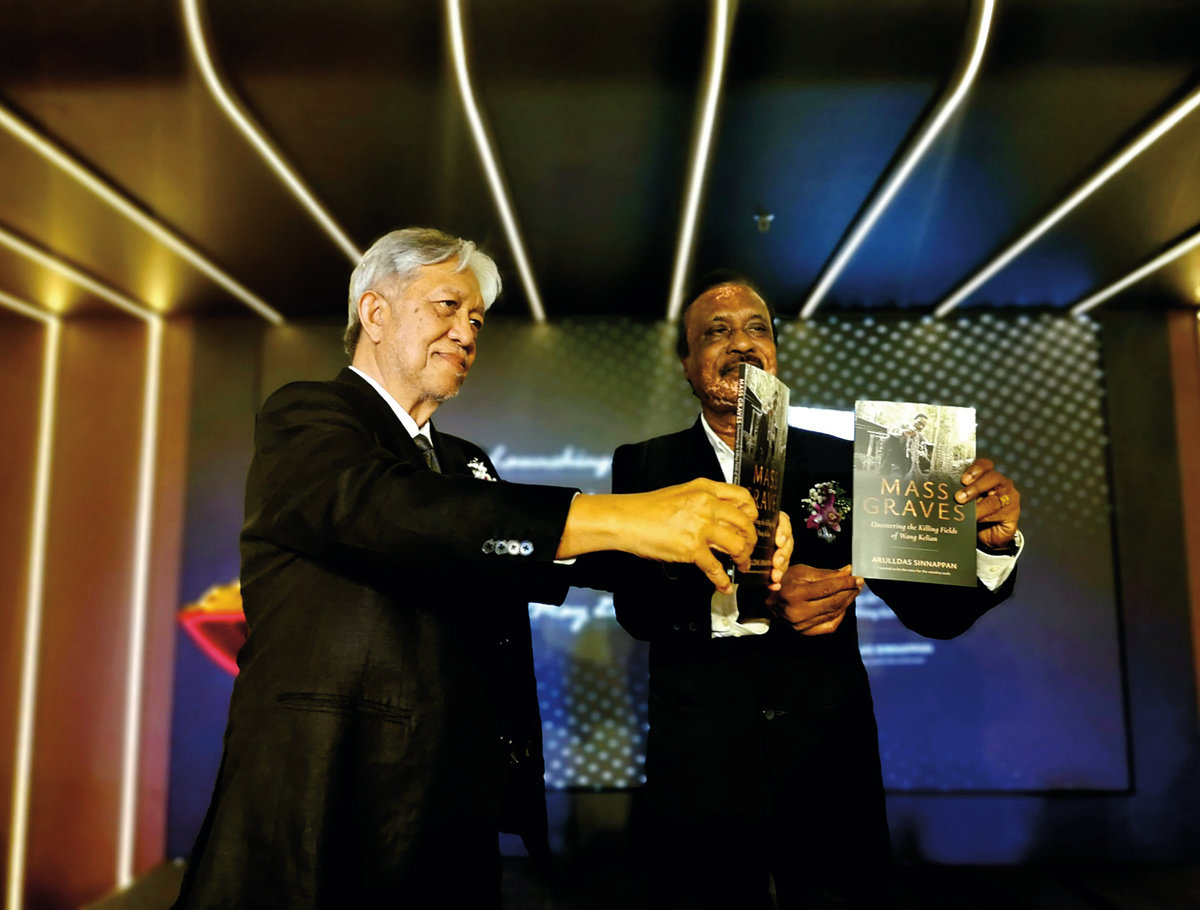GEORGE TOWN: Nearly a decade after the discovery of mass graves in Wang Kelian shocked the nation, the Human Rights Commission has warned that systemic weaknesses continue to undermine the country’s anti-trafficking efforts.
Its vice-chairman Tengku Mohamed Fauzi Tengku Abdul Hamid described Malaysia’s unresolved institutional failures as a source of human suffering and urged concrete action.
“The souls buried in Wang Kelian cry not just for remembrance, but also for accountability,” he said during a keynote address at the launch of Mass Graves, a book by veteran journalist Datuk Arulldas Sinnappan documenting the 2015 tragedy.
The book chronicles the discovery of 139 graves across 28 abandoned human trafficking camps near the Malaysia–Thailand border in Perlis.
Each grave was believed to contain three to four bodies, many wrapped in white cloth in accordance with Muslim burial traditions.
Victims were reportedly starved and tortured.
Arulldas, who uncovered the graves after a tip-off, details the discovery of remains believed to belong to Rohingya and Bangladeshi nationals trafficked and held in jungle camps.
A Royal Commission of Inquiry (RCI) held in 2019 found evidence of serious negligence in border monitoring but did not implicate any Malaysian officials in trafficking operations.
The report was initially classified under the Official Secrets Act, with limited sections made public in 2022 before being taken down.
The RCI confirmed that Malaysian authorities located the trafficking camps in January 2015, but exhumation and public disclosure only occurred in May.
During that gap, a senior police officer allegedly ordered the site destroyed, raising concerns about obstruction of justice.
Still, the RCI concluded there was no proof of enforcement or civil servant involvement, a finding still questioned by rights groups.
While Tengku Mohamed Fauzi did not directly dispute the RCI’s findings, he stressed that impunity and inaction remain pressing issues.
He highlighted the joint commission–Fortify Rights report “Sold Like Fish”, which described the 2012-2015 crimes as a “widespread and systematic attack on civilian populations” and possibly crimes against humanity under international law.
“Survivors were forced to pay up to RM7,000 for their release or face torture, or death. Eyewitnesses reported complicity by officials in transporting Rohingya captives from state custody directly into the hands of traffickers,” he said.
Beyond Wang Kelian, the commission has continued to receive fresh complaints.
From 2020 to 2024, 22 trafficking-related reports were lodged. Victims, including women, were deceived into working in entertainment venues, while children were forced into plantation labour.
Although improvements have been made – such as the development of shelter standard operating procedures, educational programmes for children, and strengthened grassroots enforcement in Sabah and Sarawak – Tengku Mohamed Fauzi highlighted persistent structural problems.
He noted ongoing challenges, including language barriers in detention centres, a shortage of medical personnel in shelters and understaffing in the Labour Department.
It recommended assigning medical officers to all shelters to provide health screenings and basic care.
It also urged the government to boost staffing at the Labour Department to improve enforcement in rural sectors such as plantations and factories.
Under Section 4(2)(d) of the Human Rights Commission Act, the commission is empowered to carry out both routine and complaint-based inspections of detention centres, shelters, plantations and factories.
These visits include interviews with detainees and reviews of healthcare services, infrastructure, and inter-agency coordination.
Tengku Mohamed Fauzi also called for detention centres to comply with the United Nations’ Mandela Rules, which set minimum standards for the treatment of prisoners.
“Let us ensure that Malaysia does not become a silent witness to impunity. Let us be a nation that confronts its past with honesty and forges a future where human dignity is upheld for all.”









